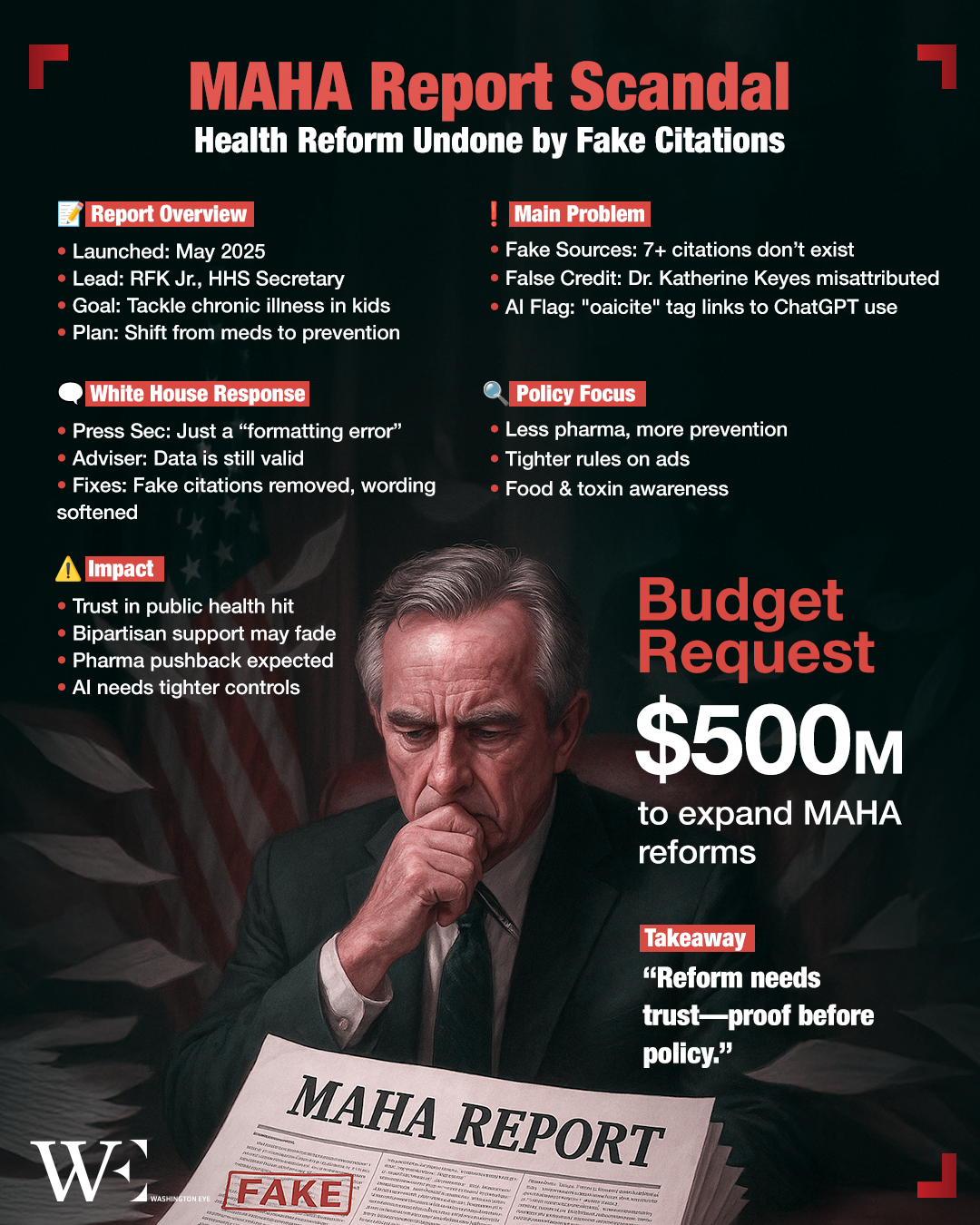The “Make America Healthy Again” (MAHA) report, championed by Health and Human Services Secretary Robert F. Kennedy Jr. under the Trump administration, was launched as an ambitious plan to reverse the tide of chronic illness in American children. Presented as a corrective to decades of failed health policy, the report was intended to lay the groundwork for sweeping reform. However, its early momentum was derailed by a critical flaw: the inclusion of references to several studies that, upon investigation, do not exist. What should have been a landmark health policy document is now embroiled in controversy over basic scholarly integrity.
Ghost Citations and the Shadow of Generative AI
At the heart of the issue is a set of at least seven citations within the MAHA report that lead nowhere. Among the most troubling examples is a supposed study on adolescent mental health co-authored by epidemiologist Dr. Katherine Keyes. Not only did the study not exist, but Dr. Keyes herself confirmed to ABC News that she had no involvement in the publication attributed to her name. “I was surprised to see what seems to be an error in the citation of my work”, she said, adding that accurate citation is fundamental to scientific credibility.
Further analysis has suggested that the origins of these spurious references may lie in artificial intelligence. The report includes a formatting tag—“oaicite”—commonly associated with citations generated by OpenAI’s ChatGPT, pointing to the likelihood that AI tools were used in drafting the document. These tools, while powerful, are known to occasionally fabricate plausible-sounding but entirely fictional studies unless rigorously checked.
Official Defenses: Damage Control or Downplay?
As backlash mounted, the Trump White House sought to contain the fallout. Press Secretary Karoline Leavitt downplayed the incident as a “formatting error” rather than a substantive flaw. “The issues in citation do not negate the substance of the report”, she stated, describing it as “one of the most transformative health reports ever released”.
Senior adviser Calley Means echoed that message, asserting that while the citations may have been flawed, “the underlying data and conclusions are correct”. He confirmed that the report has since been revised, and that the updated version removes the fictitious references while softening definitive language that had drawn criticism.
For instance, a statement that direct-to-consumer advertising “led parents to overestimate ADHD prevalence and to request ADHD drugs inappropriately” was amended to say that such advertising “potentially” influences perceptions and decisions—an important rhetorical shift toward scientific caution.
Policy at a Crossroads: Trust, Truth, and the Future of U.S. Healthcare
The fallout from the MAHA report’s citation scandal is more than a political embarrassment—it represents a high-stakes moment for U.S. healthcare policy. At its core, MAHA seeks to reshape how chronic diseases in children are addressed, advocating a shift away from pharmaceutical reliance and toward preventative, lifestyle-based strategies. But the discovery of fabricated citations threatens to derail that mission by undermining the report’s scientific legitimacy at a time when the Trump administration is asking Congress to invest $500 million to scale the initiative.
The implications are multilayered:
First, the scandal may chill bipartisan momentum around child health reform. While there is growing recognition across party lines that the American healthcare system has overemphasized reactive care and underfunded prevention, the controversy gives ammunition to skeptics who may now frame MAHA as ideologically motivated or scientifically unserious.
Second, the episode exacerbates a broader crisis of trust between the public and the health policy establishment. Americans’ confidence in public health institutions is already fragile following the COVID-19 pandemic, where messaging inconsistencies and political interference sowed confusion and division. The appearance that a federal health report contains fabricated data—even if corrected—risks further corroding that trust.
Third, and perhaps most concerning, this controversy could lead to greater scrutiny or rollback of innovative—but urgently needed—reforms. MAHA touches on sensitive industry interests, including pharmaceutical advertising, food policy, and environmental toxins. With its credibility damaged, the report’s core proposals may be shelved or diluted—not because they lack merit, but because the framing document failed to meet evidentiary standards.
Finally, this debacle places new urgency on developing protocols for integrating AI into scientific and governmental writing. As generative tools become more common, especially in high-speed policy environments, clear standards for source verification and human oversight will be essential. Without them, the risk of misinformation entering official discourse increases dramatically, with tangible consequences for public health outcomes.
A Final Note
The MAHA report was conceived as a cornerstone of transformative health reform under the Trump administration, aiming to reverse America’s chronic disease epidemic by targeting root causes rather than symptoms. Yet its rollout has illuminated the growing pains of policymaking in an era defined by rapid technology, eroding institutional trust, and polarized science discourse. While the immediate controversy centers on a handful of citations, the broader issue is one of credibility—how do we ensure that ambitious reforms are grounded in rigor, not just rhetoric? If MAHA is to fulfill its promise, its backers must now demonstrate not only the urgency of their mission but also the integrity of their methods. In that effort, the real test of American healthcare reform begins—not with the vision, but with the verification.


















